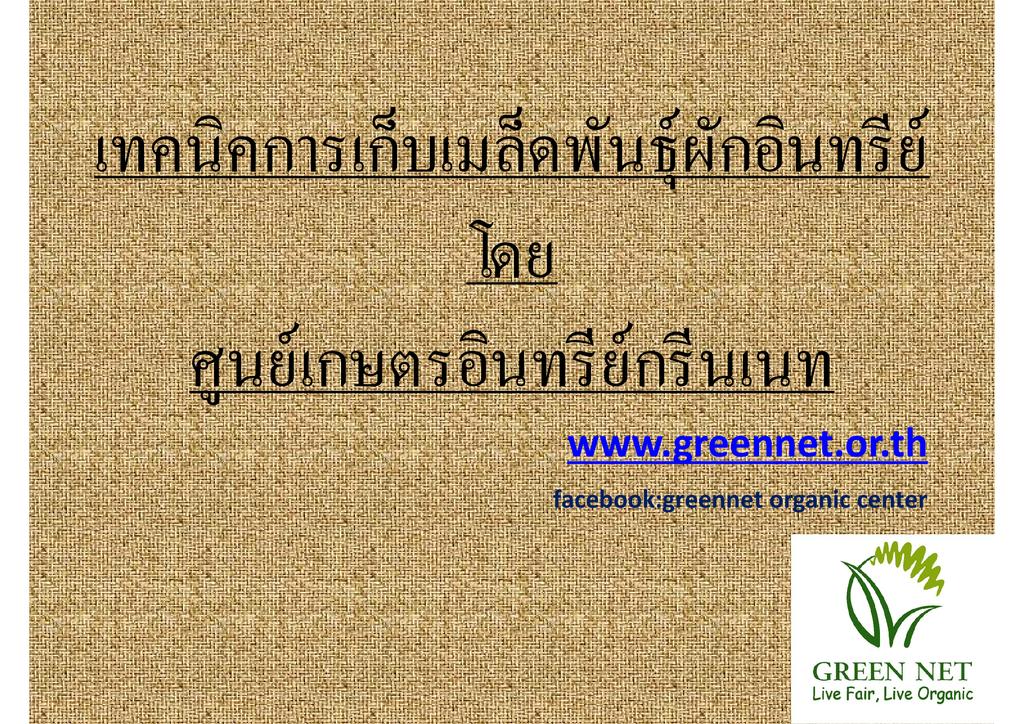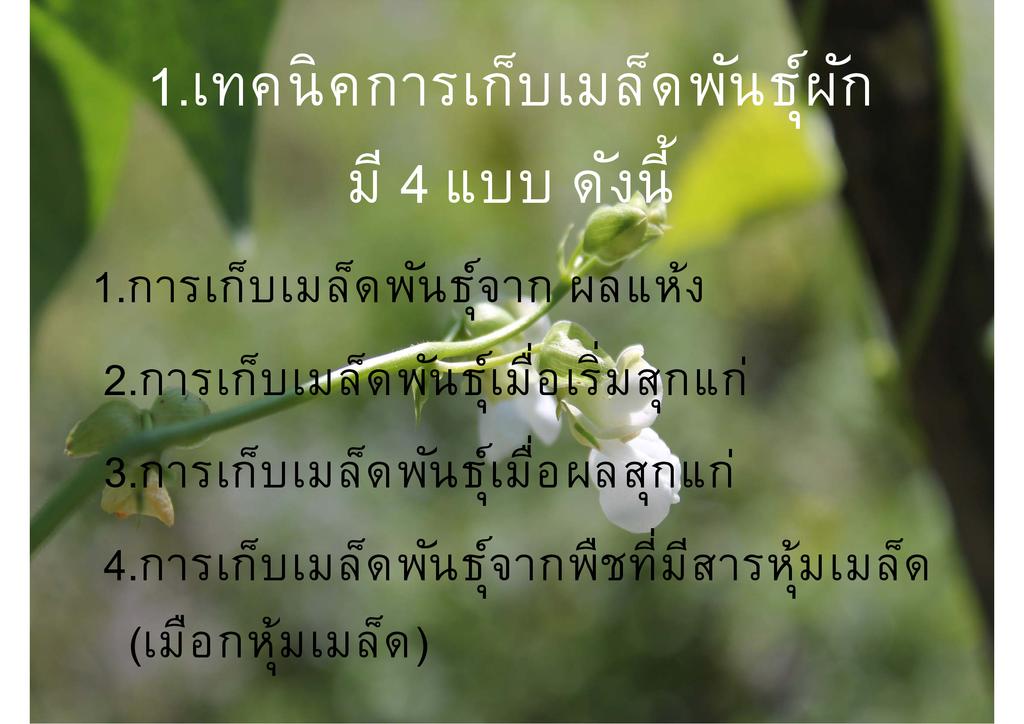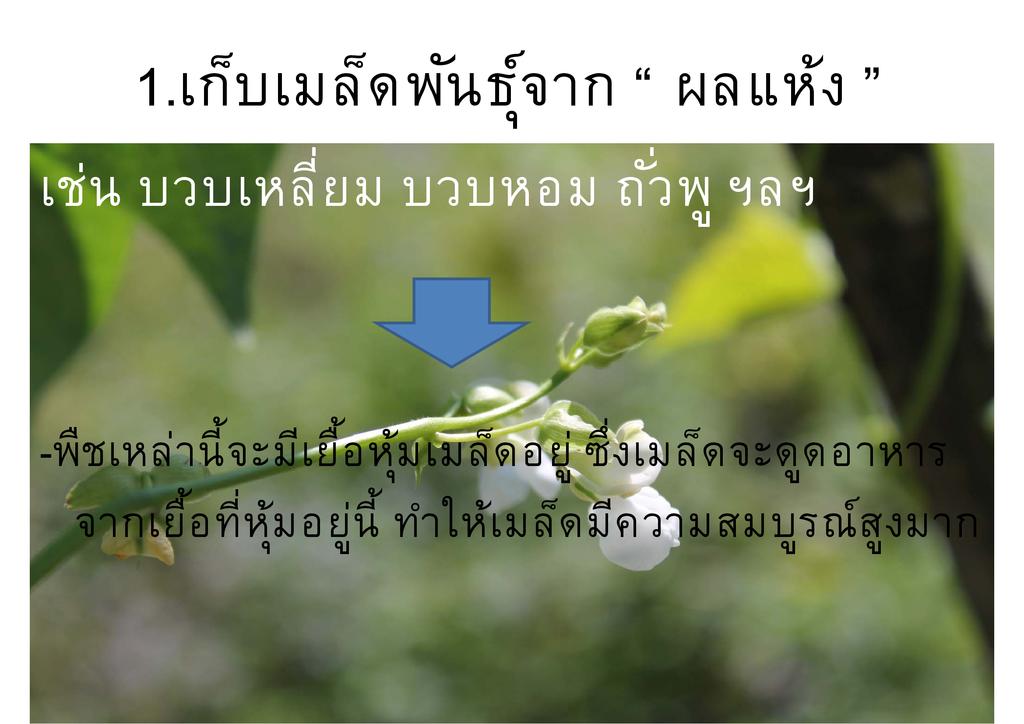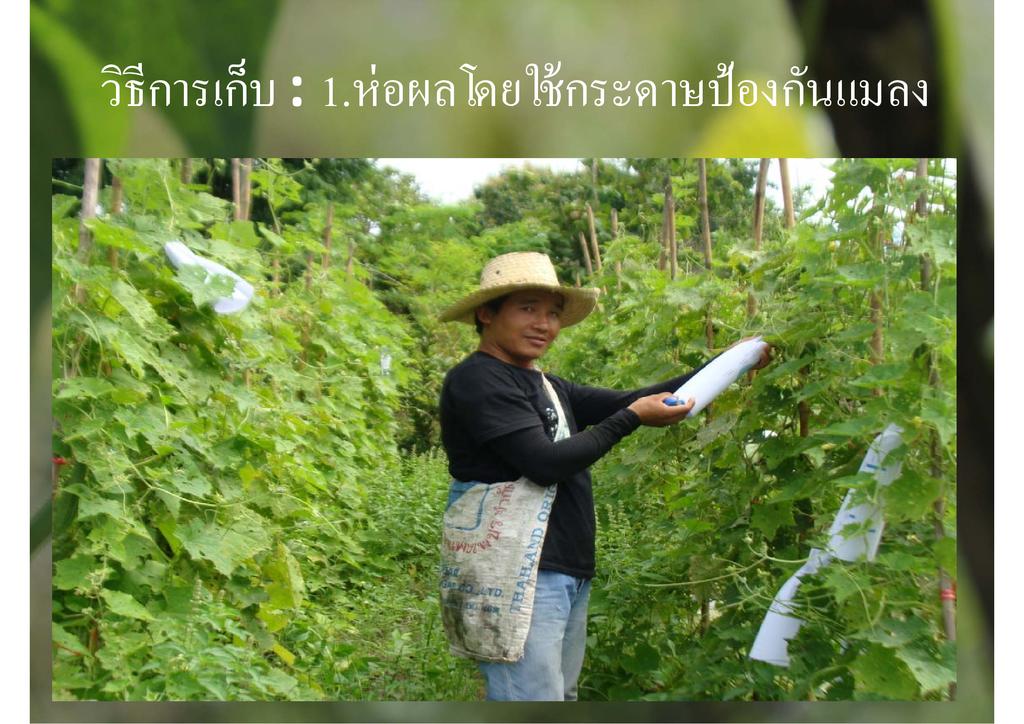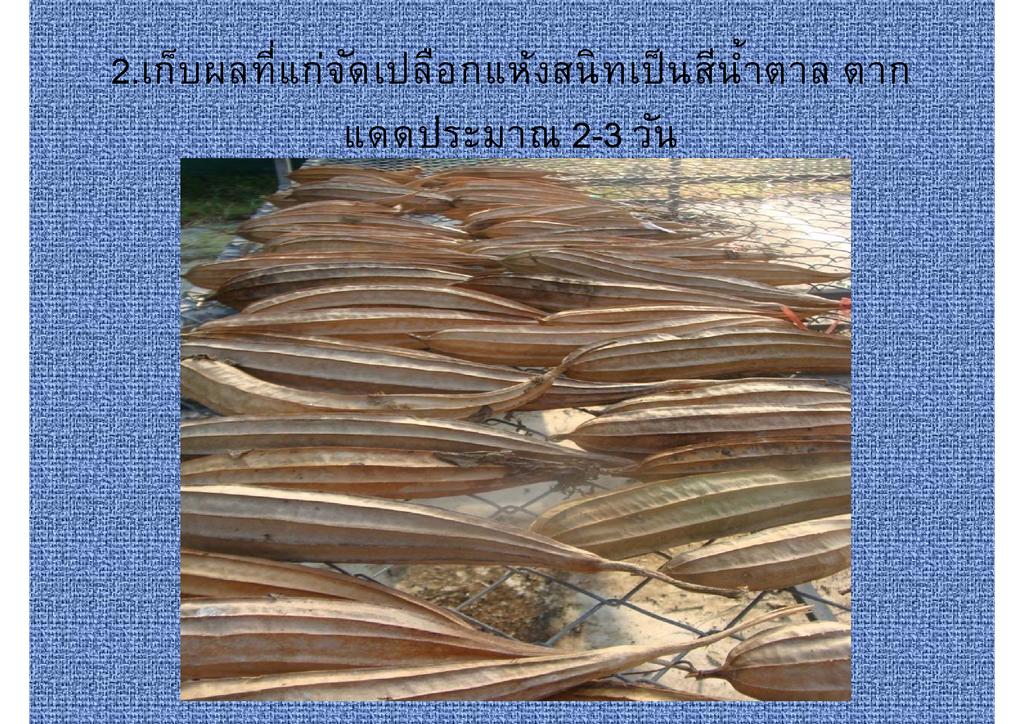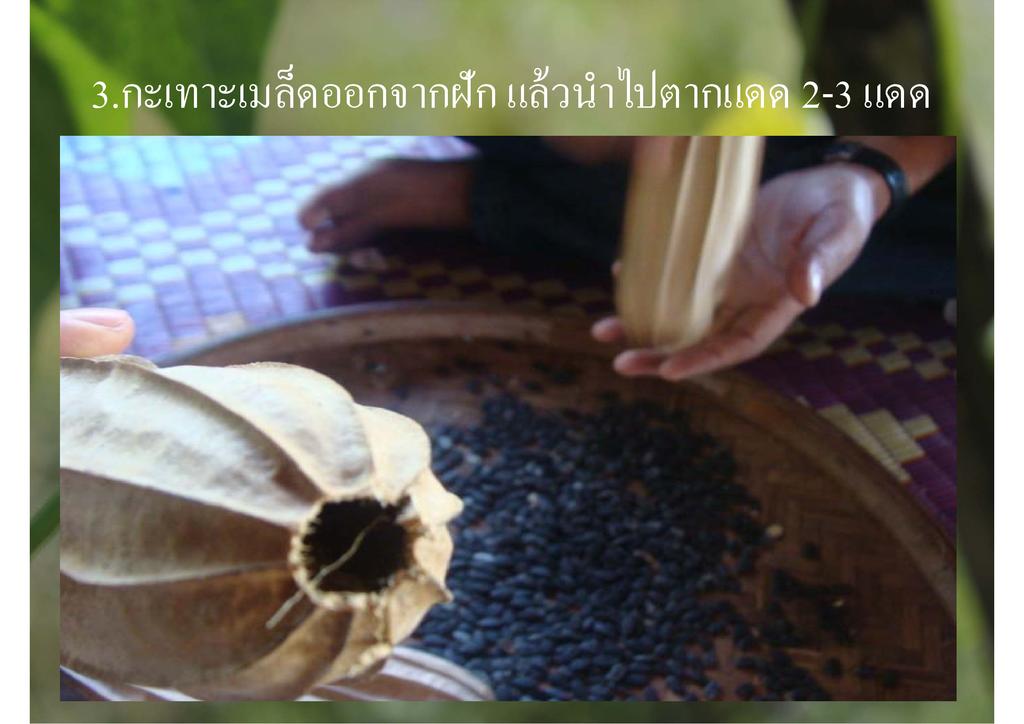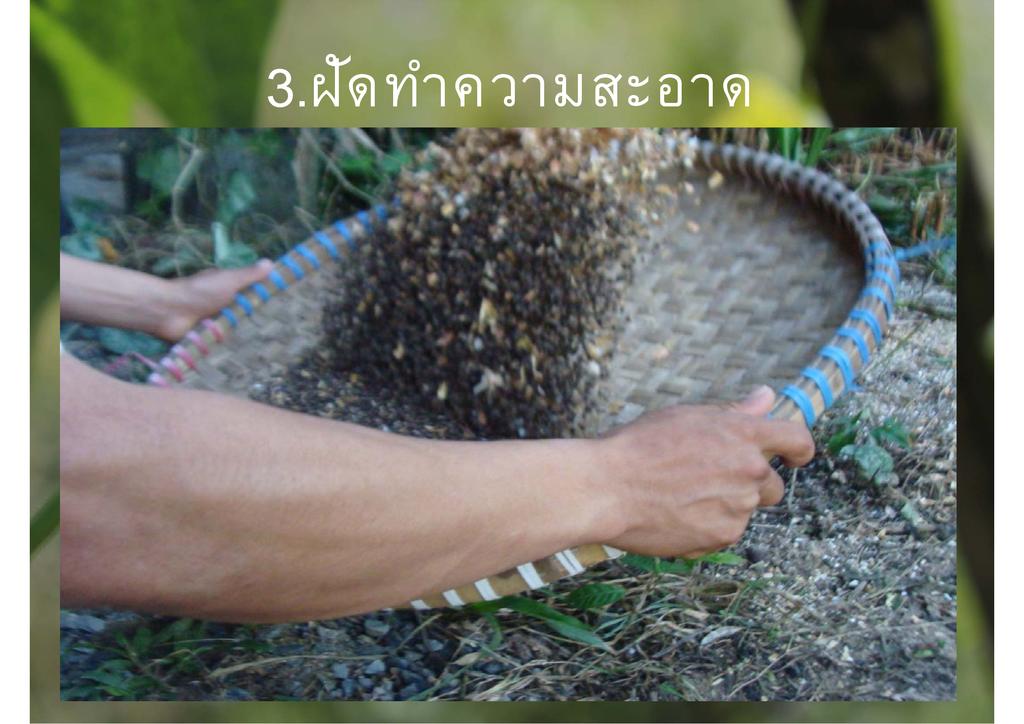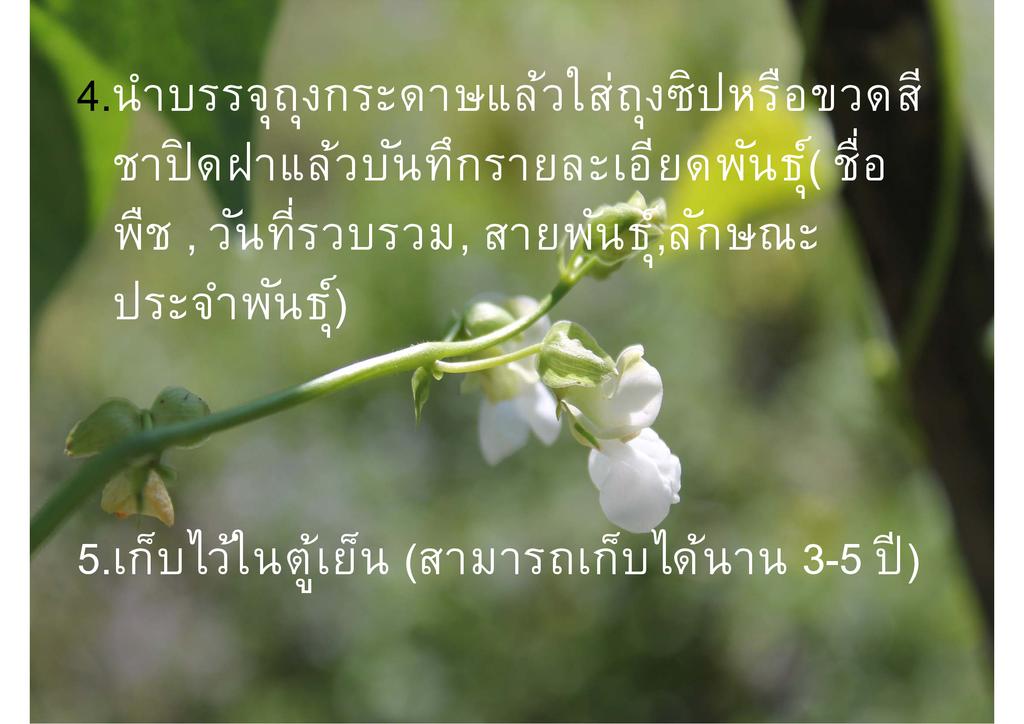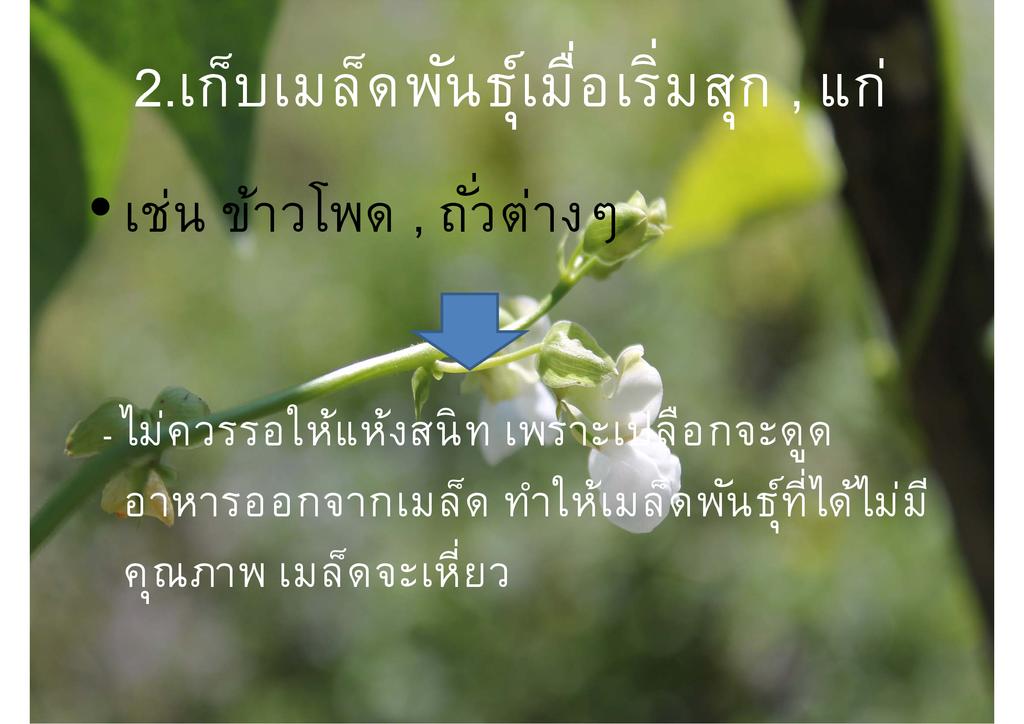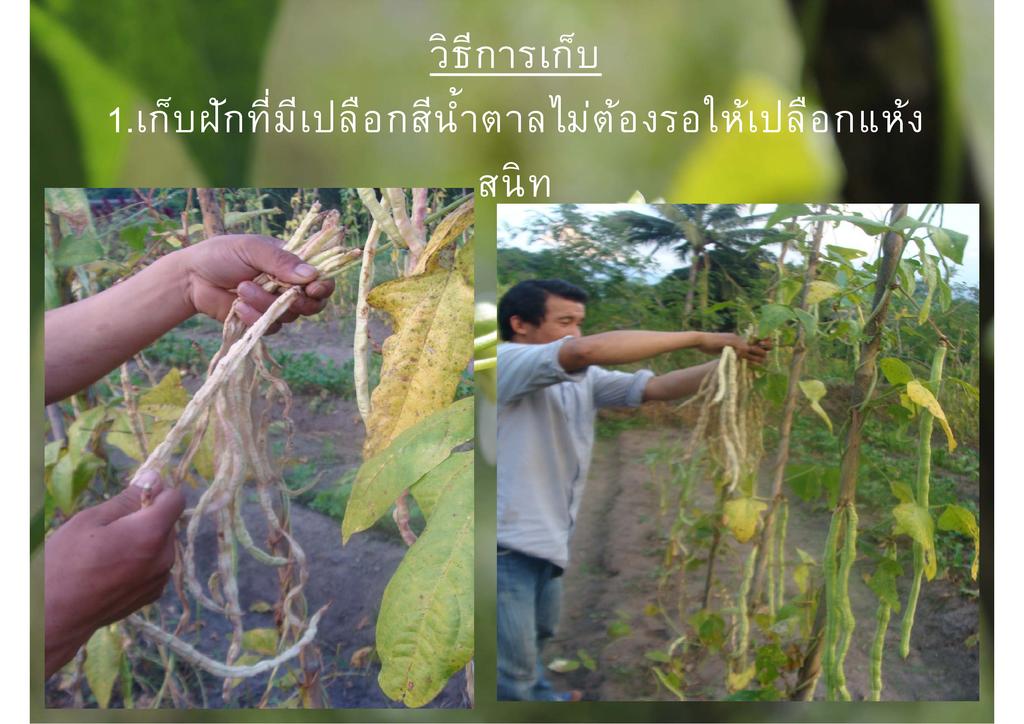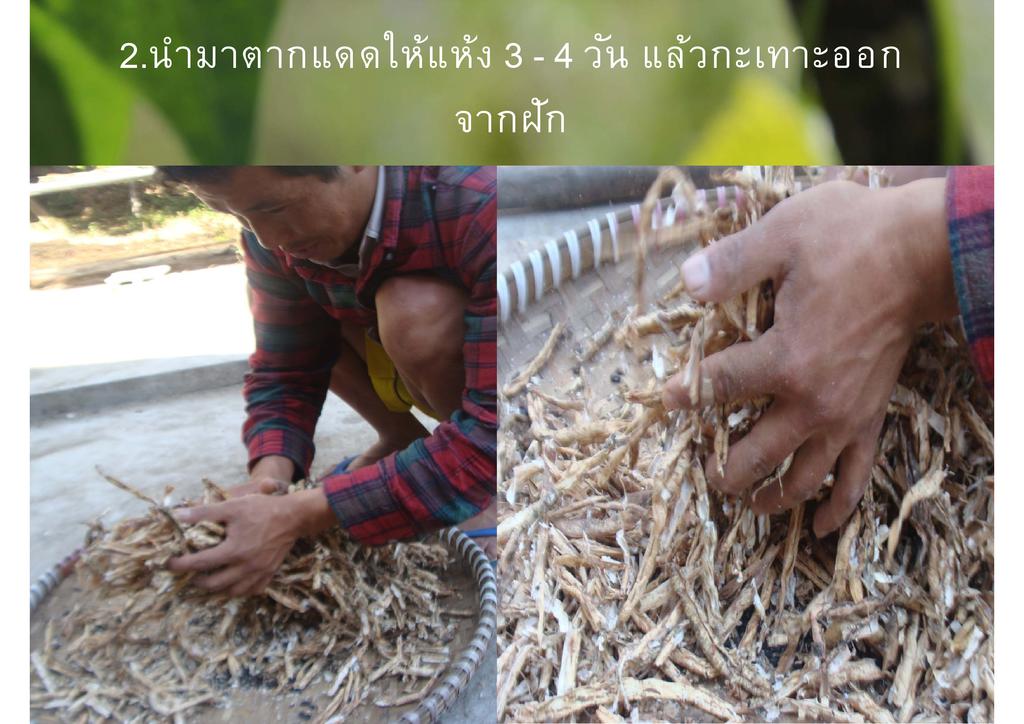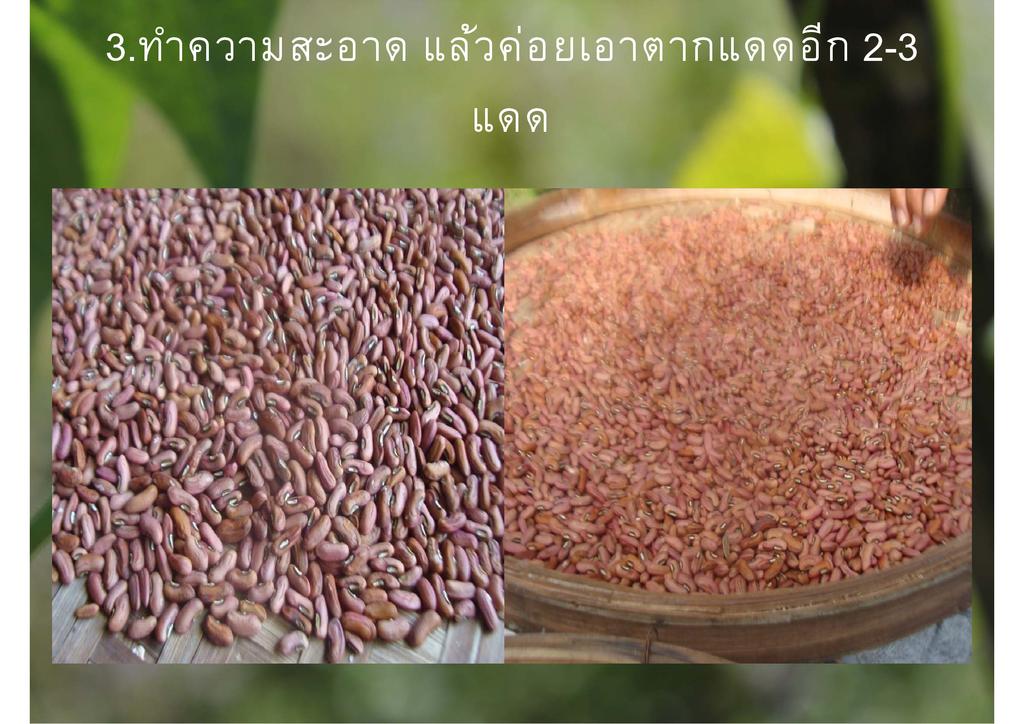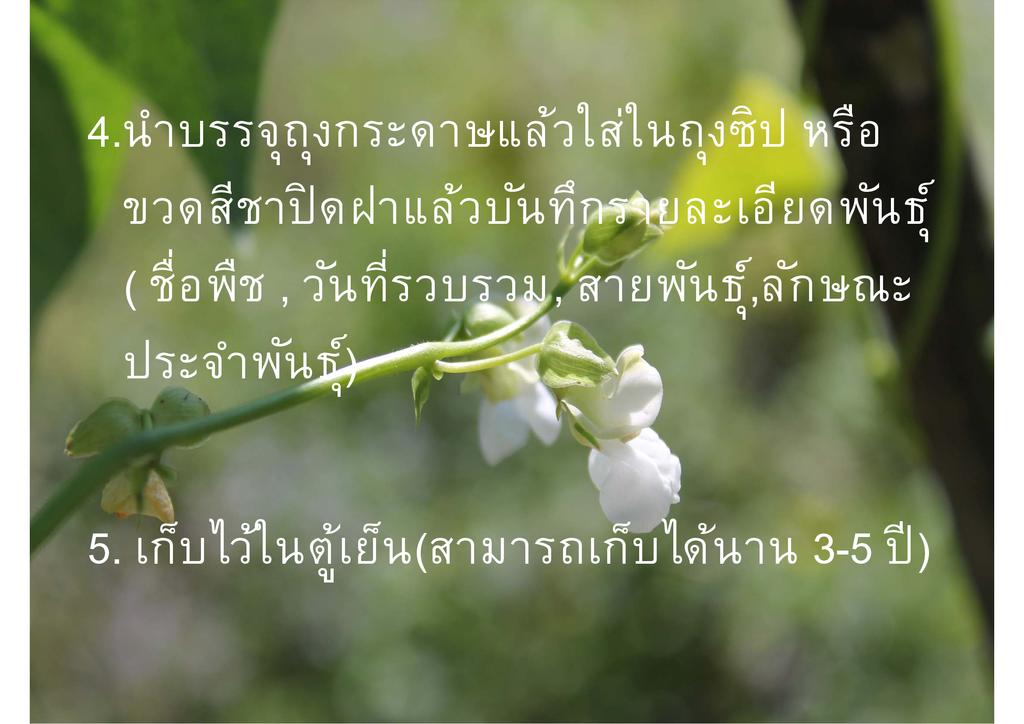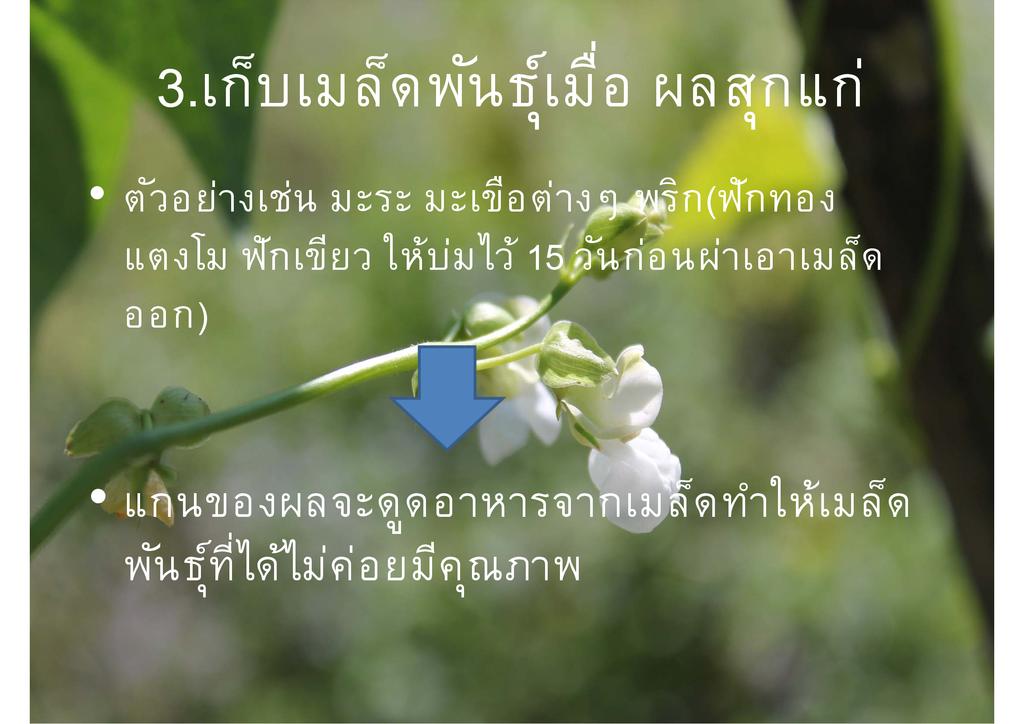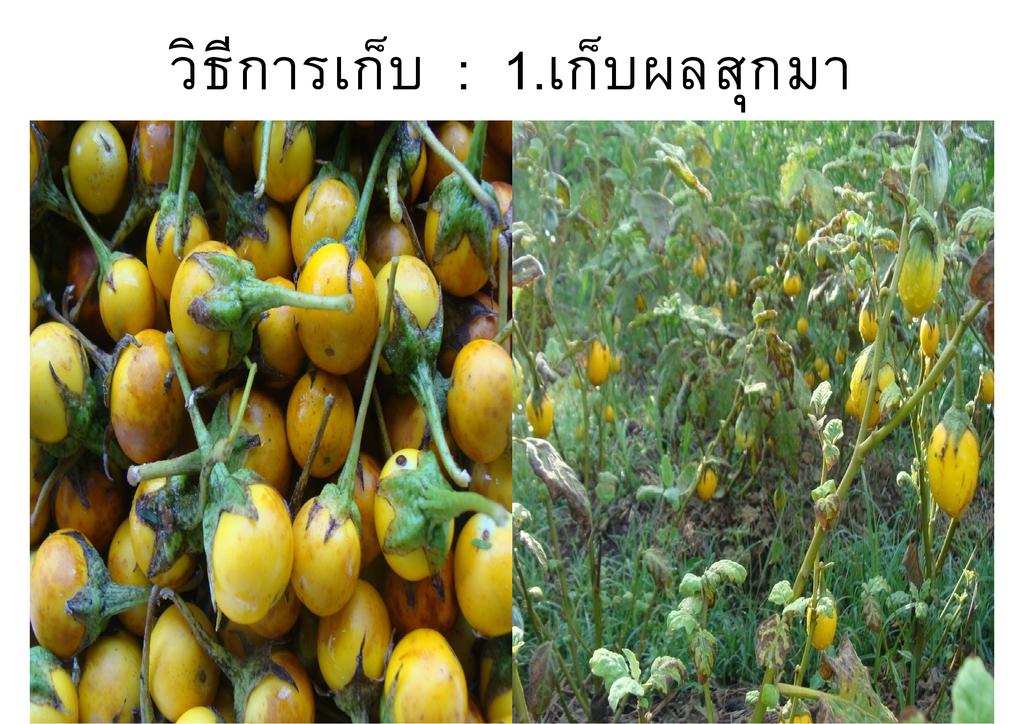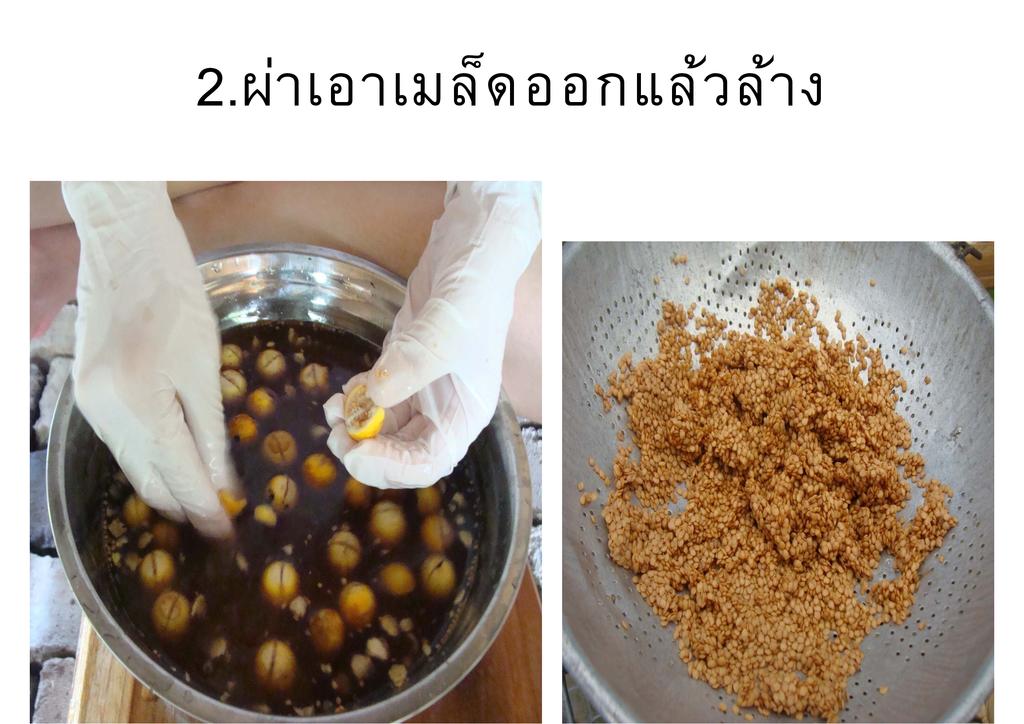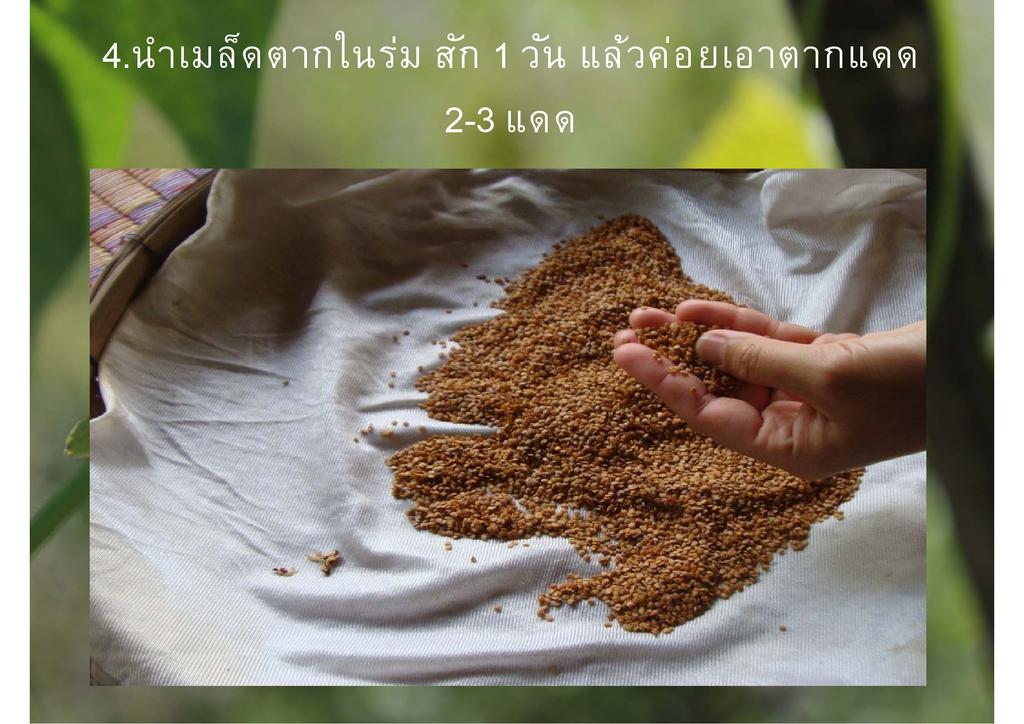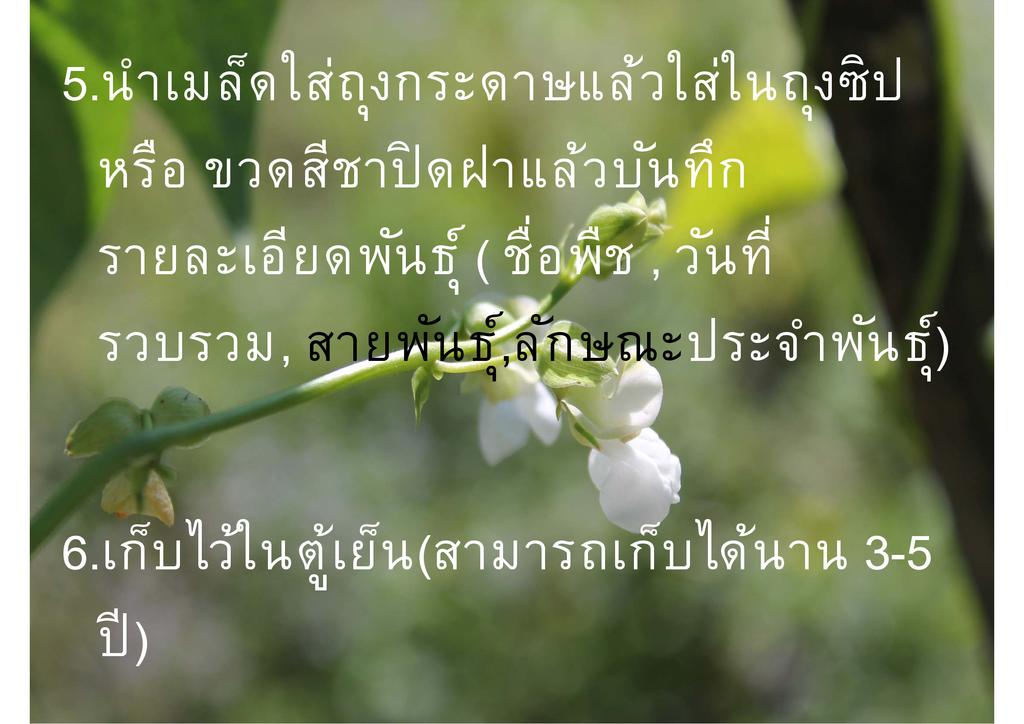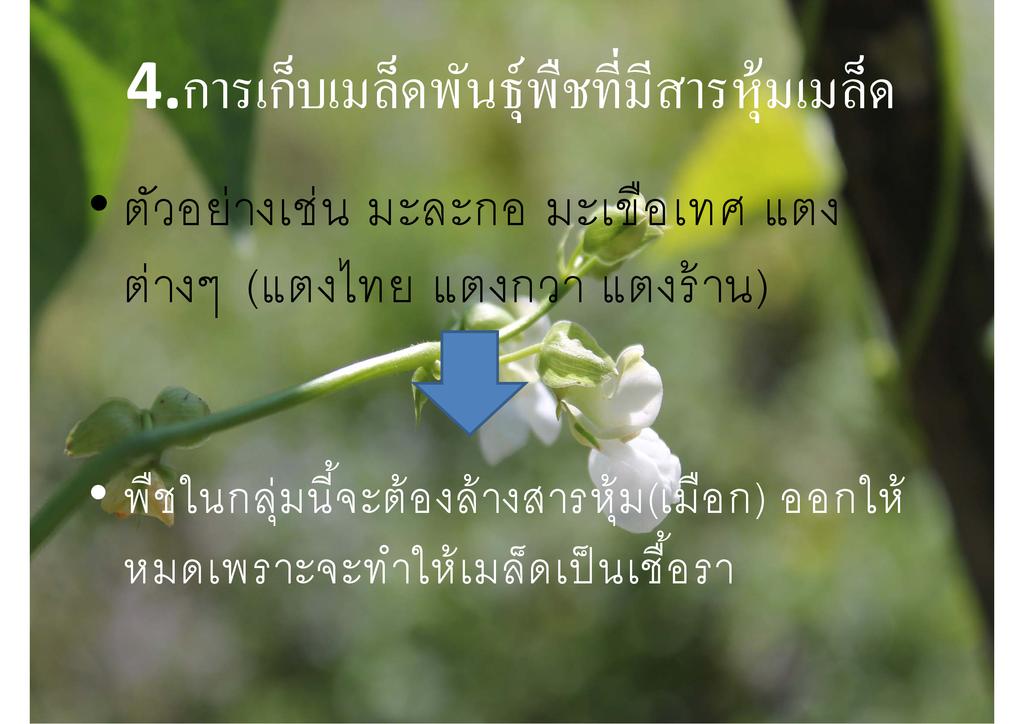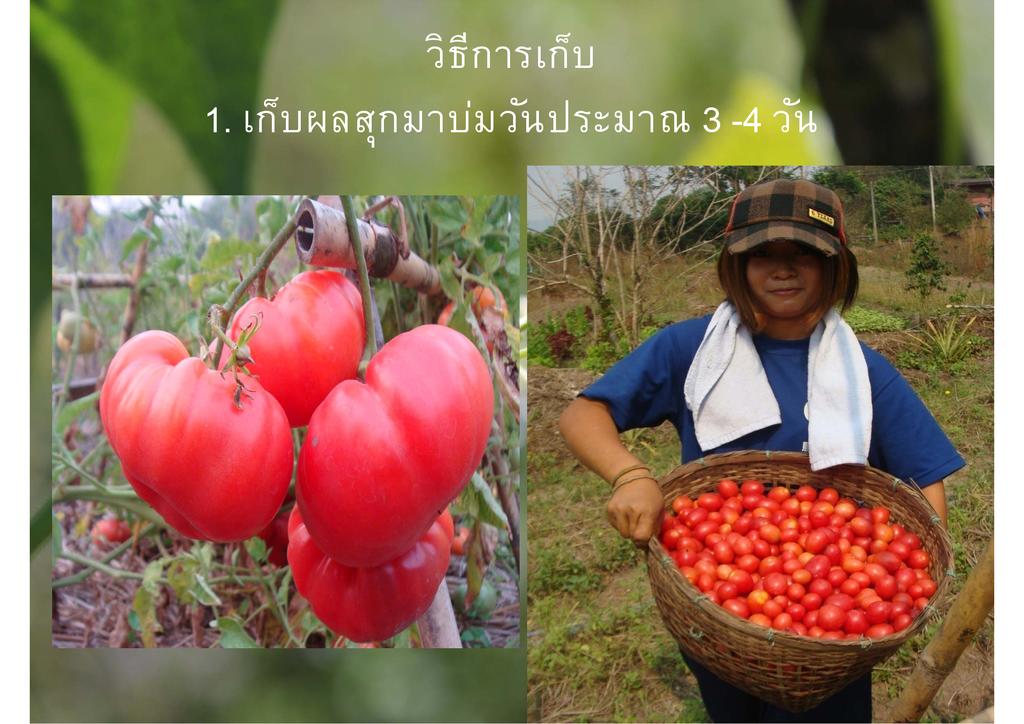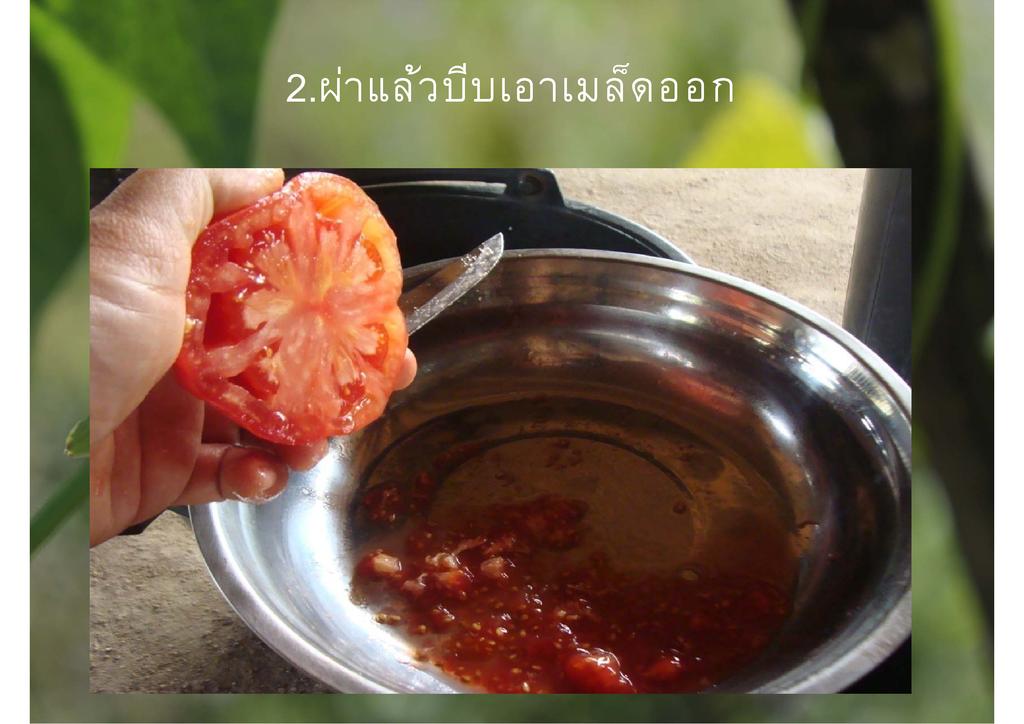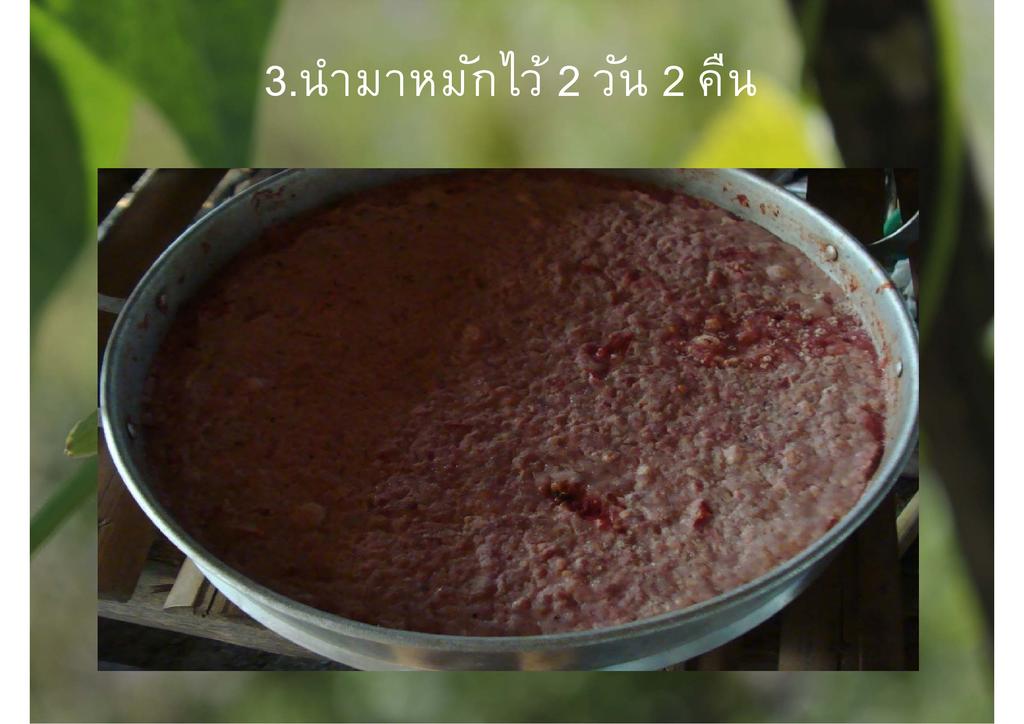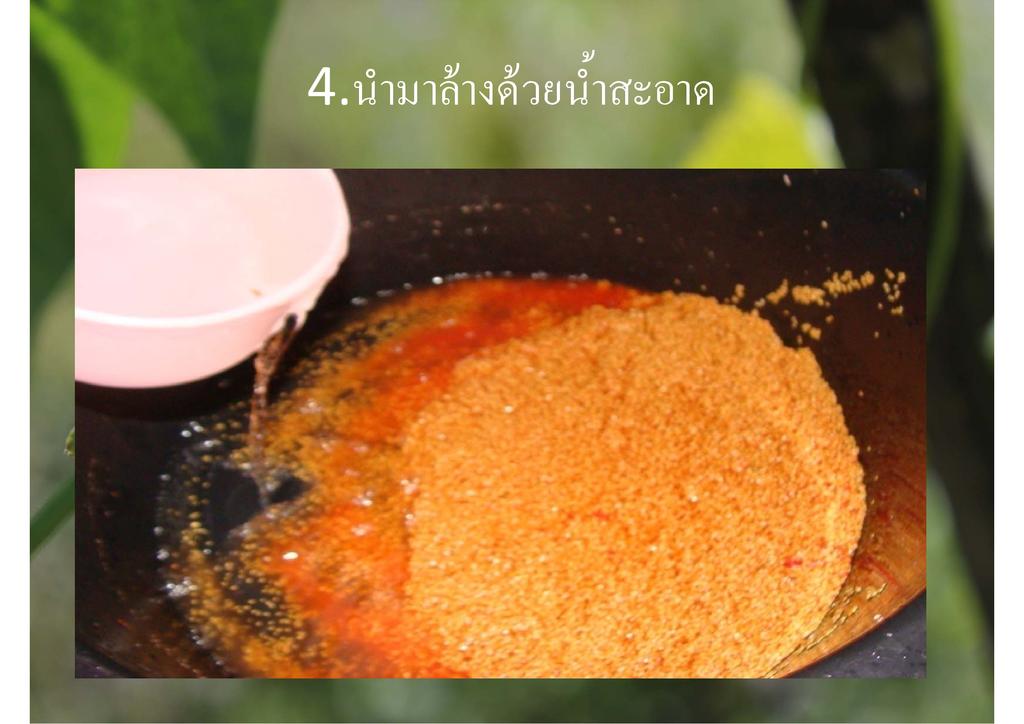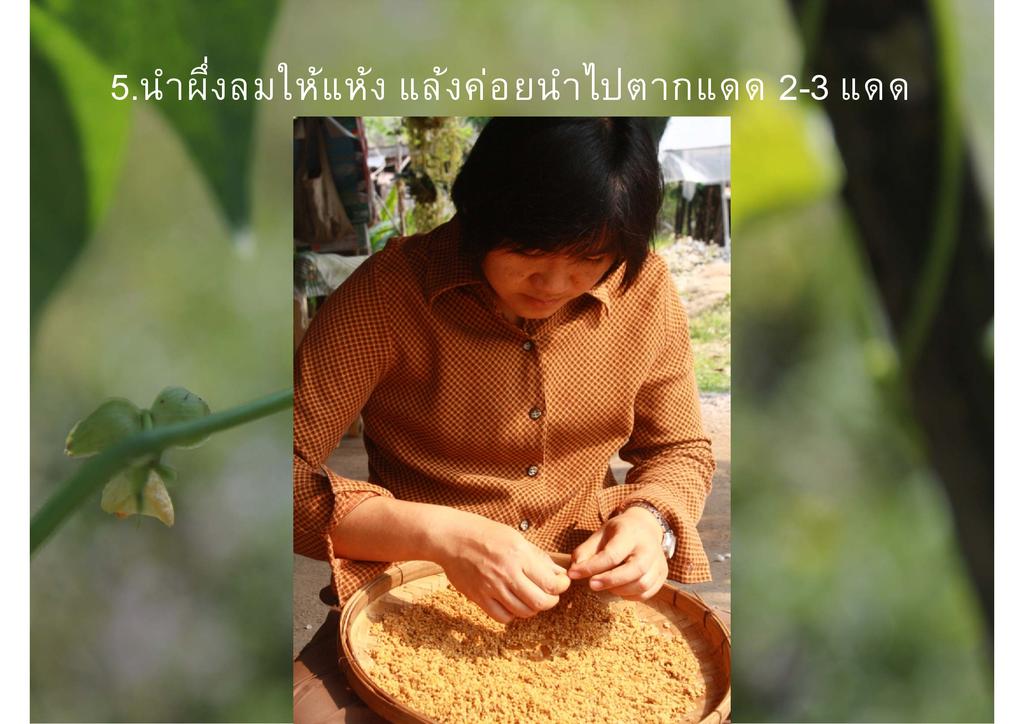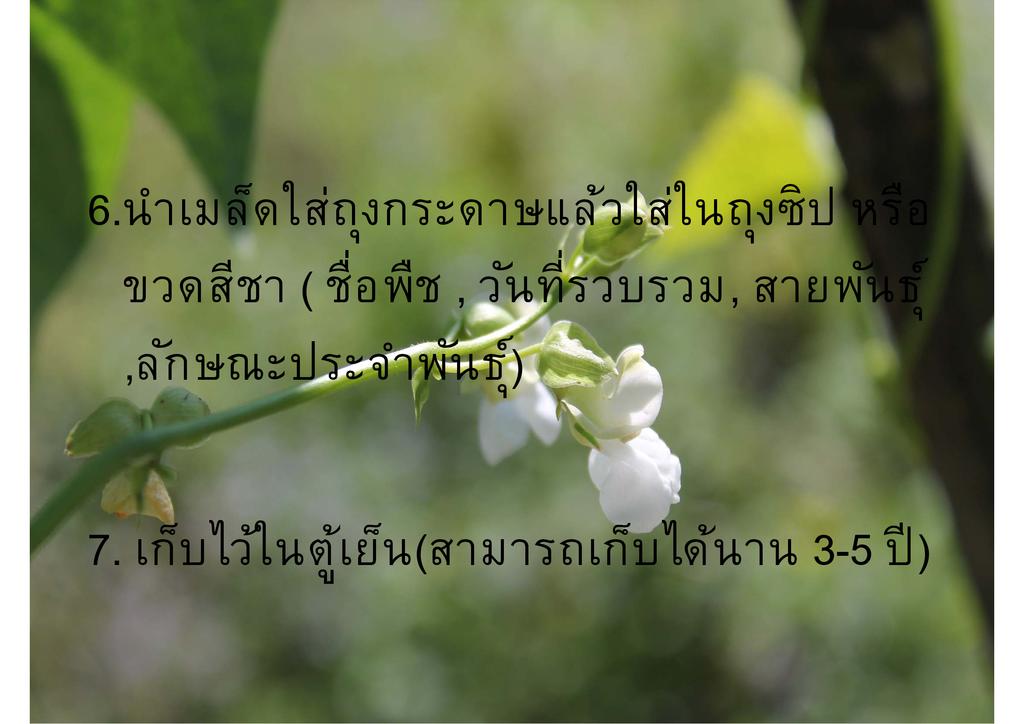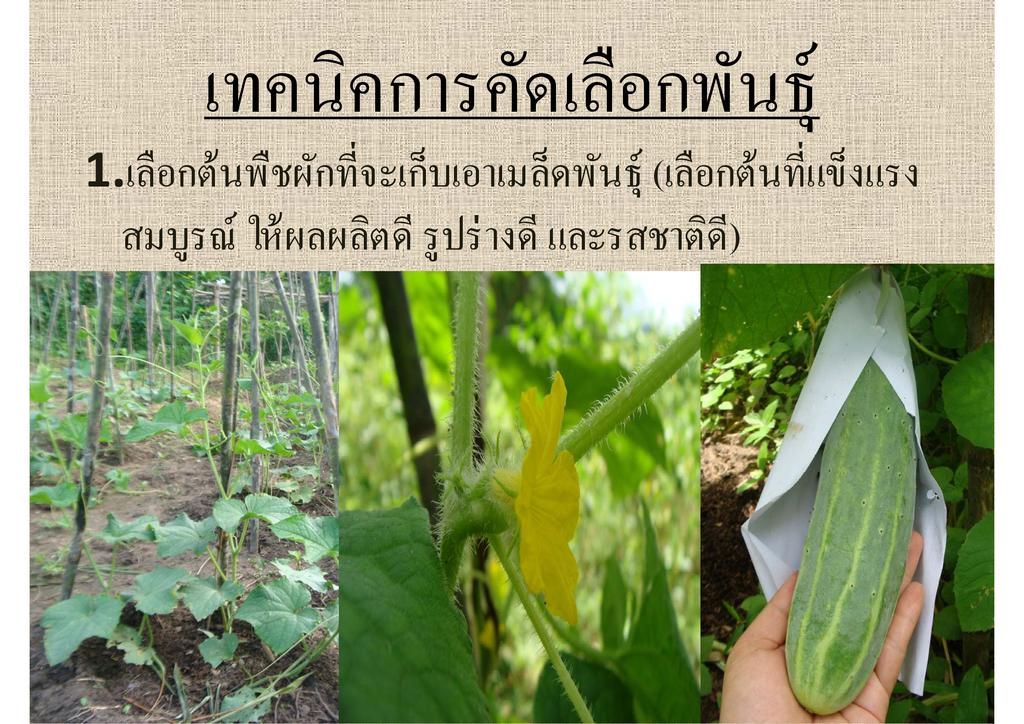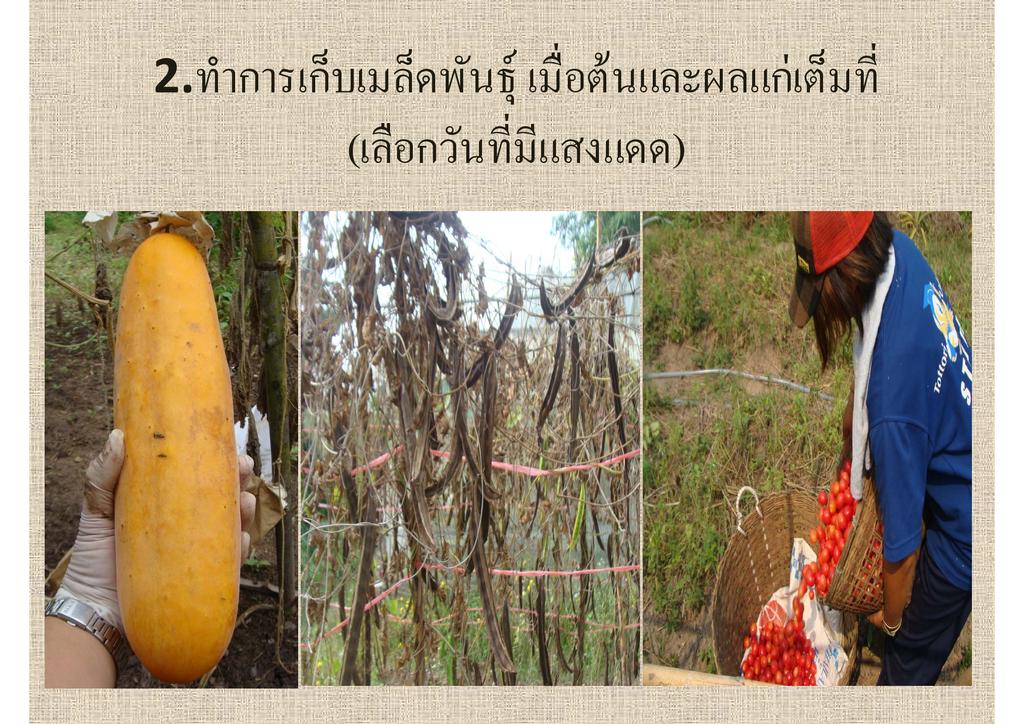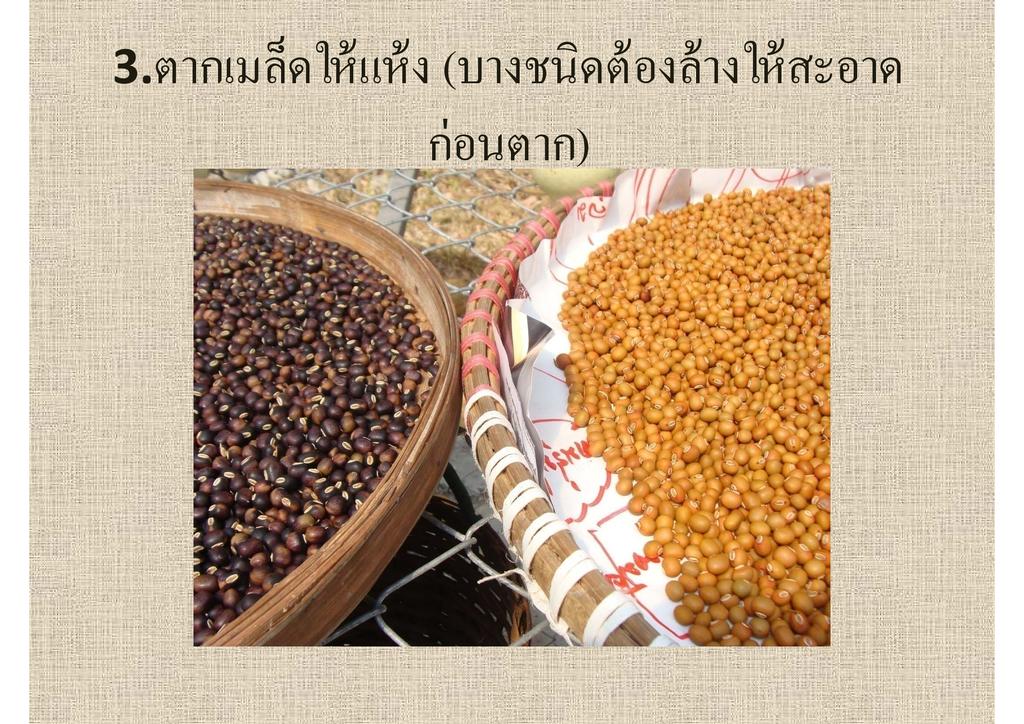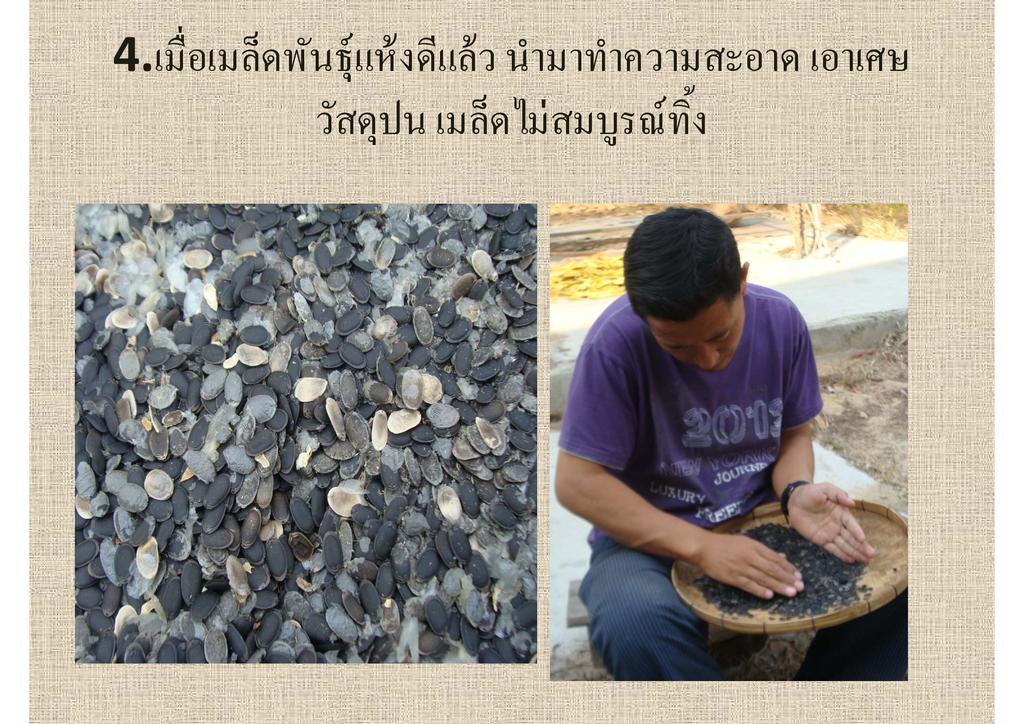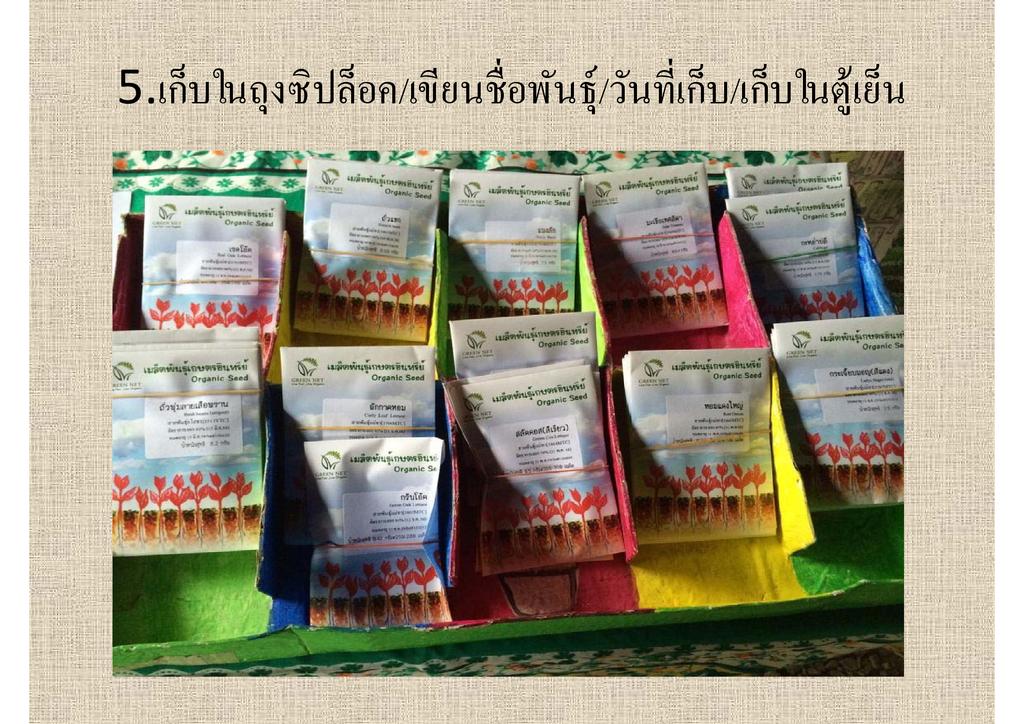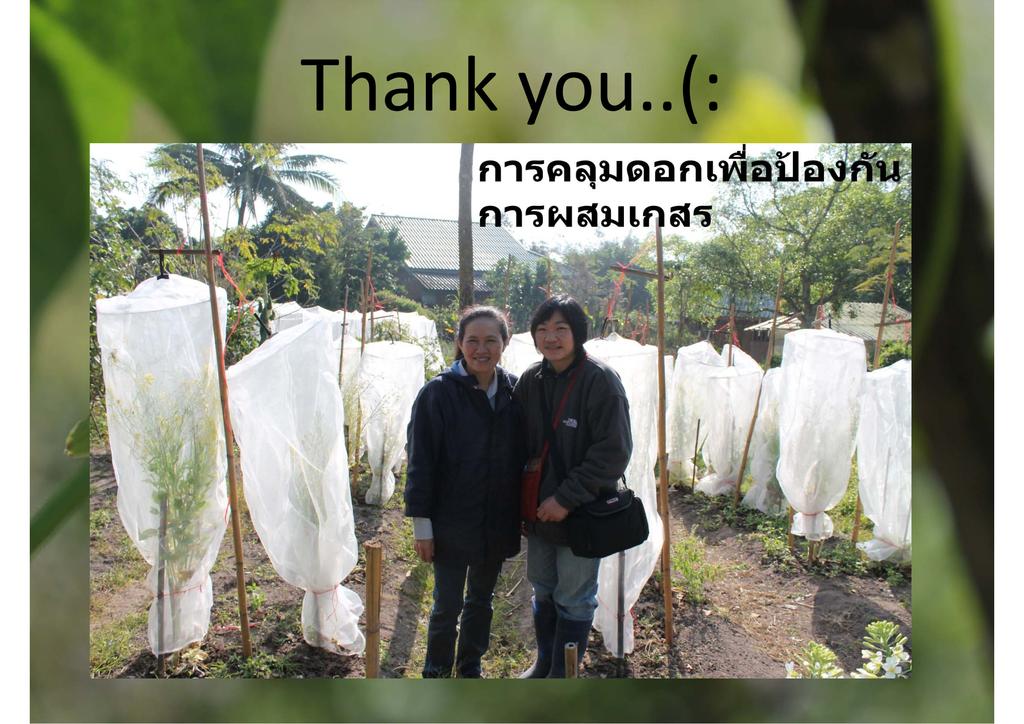Presented By: Mathana Aphaimool (Pui) นส. มัทนา อภัยมูล (ปุ้ย)
Event: ECHO Asia "Improving Lives" Agriculture & Community Development Conference (04-10-2017)
Seeds are the most significant agricultural input factor. Smart farmers must know how to select and harvest the seeds that are adaptable to the environment in a particular area and their production requirement characteristics. Each vegetable has certain times during the plant’s growth when seed selection and harvesting is best accomplished. There are four seed selection and harvesting stages which are: 1) harvesting at the dry fruit stage, such as Lufa species; 2) harvesting at the early ripe stage, such as corn and beans; 3) harvesting at the completely ripe stage, such as eggplant species and gourd species; and 4) harvesting mucus-covered seed, such as papayas, cucumbers and tomatoes. A successful farmer must know how and when to select and harvest seed from each type of plant.
เมล็ดพันธุ์คือปัจจัยที่สำคัญในการทำการเกษตร เกษตรกรที่ฉลาดควรมีความรอบรู้ในการคัดเลือกและเก็บ เมล็ดพันธุ์ที่เหมาะสมกับสภาพแวดล้อมและทดต่อโรคและแมลง อีกทั้งมีคุณลักษณะตามที่ต้อการ. พืชแต่ละชนิดมีช่วงระยะเวลาในการเก็บเมล็ดพันธุ์ที่ต่างกัน การเก็บเมล็ดพันธุ์นั้นกระทำได้สี่วิธีด้วยกัน คือเก็บเมล็ดพันธุ์เมื่อผลแห้ง เช่นตะกูลบวบ, เก็บเมล็ดพันธุ์เมื่อผลเริ่มสุกเช่นข้าวโพดและถั่ว, เก็บเมล็ดพันธุ์เมื่อผลสุกเต็มที่เช่นมะเขือและฟัก และเก็บเมล็ดพันธุ์ที่มีเมือกหุ้มเช่นมะละกอ แตง มะเขือเทศ เกษตรกรที่ประสบความสำเร็จต้องรู้ว่าพืชแต่ละชนิดควรเก็บเมล็ดพันธุ์เหมือไร และ อย่างไร
